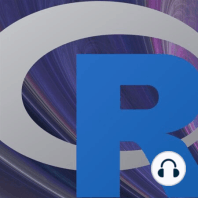32 min listen
Episode 12: Episode 12: Using Version Control with R
FromThe R-Podcast
ratings:
Length:
89 minutes
Released:
Jan 31, 2016
Format:
Podcast episode
Description
This is not an April Fool's joke ... The R-Podcast is back once again! In this episode, I discuss the concept of version control and how you can get started with using the Git VCS right now with your R projects. Also I discuss a big batch of listener feedback, and highlight a couple of great visualization applications from the community using ggplot2.
All of that and more on episode 12 of the R-Podcast!
All of that and more on episode 12 of the R-Podcast!
Released:
Jan 31, 2016
Format:
Podcast episode
Titles in the series (35)
Episode 2: Episode 2: Getting Ready to Use R: In this episode: A couple of site updates, our fi… by The R-Podcast
